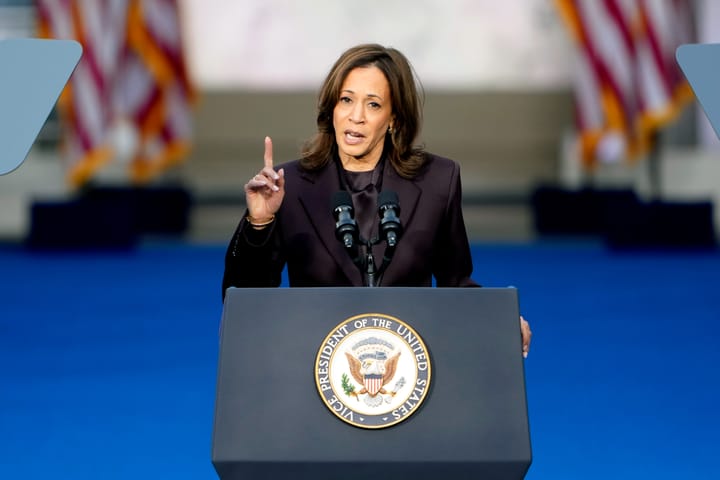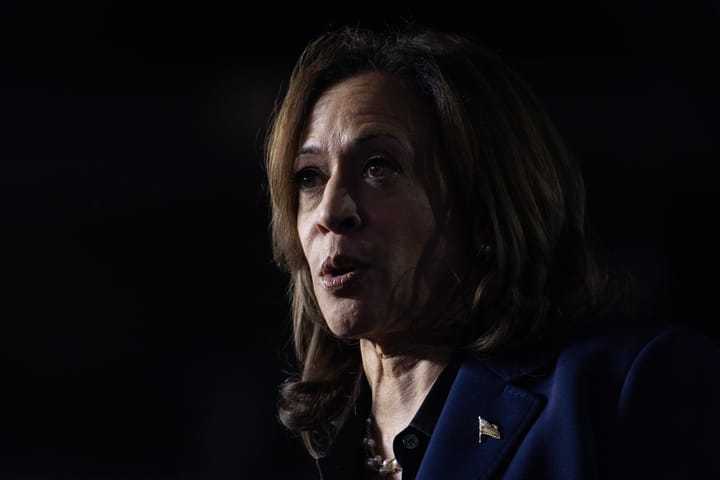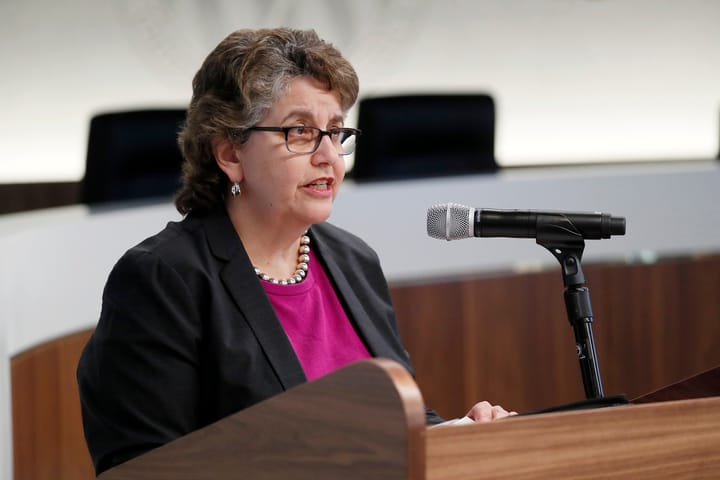In the closing weeks of the presidential campaign, the Harris campaign pivoted its message to focus on the threats to democracy of a second Trump term, putting themes of economic populism on the back burner.
The campaign’s shift away from populist messages in the home stretch, toward a bipartisan theme of defending democracy targeted at moderates and college-educated voters, was noted by several outlets.
One anonymous aide told the Associated Press that the campaign believed that 10% of swing-state voters were undecided or persuadable, the majority of them “Cheney Republicans.” In one telling tally for October, Harris appeared more often with Republican former House member Liz Cheney and billionaire Mark Cuban than with labor leader Shawn Fain, president of the United Auto Workers.
The Harris campaign was led by what one consultant called the Democratic Party’s “A-Team,” but the campaign’s strategy of appealing to swing voters on the issue of saving democracy turned out to be unsound.
How did the Harris campaign fumble its messaging on cost-of-living issues, and why did they struggle to convince financially-stressed voters that the Democratic ticket was on its side? Many of the Harris campaign’s brain trust had spent years in corporate consulting, facilitating access for CEOs, and some brought deep corporate networks to their advisory roles atop the presidential bid. Looking at the Harris campaign’s senior strategists sheds some light on the campaign’s trouble connecting with working-class voters—for example, its unwillingness to more clearly identify the forces, like billionaires and large corporations, standing in the way of populist policies.
One leader of the Harris campaign was Democratic strategist Jen O’Malley Dillon, who stayed on as campaign chair from the Biden campaign, having previously served in that role in the president’s 2020 run. She moved from the White House to lead the Biden campaign in January 2024. Soon after Biden dropped out of the race in July, she was joined by Democratic consultant Stephanie Cutter, with her one of the founding partners of consulting firm Precision Strategies. Two other figures in campaign leadership were senior adviser David Plouffe, the former Obama campaign manager in 2008 who later worked as a policy and strategy executive at Uber, and Tony West, Harris’ brother-in-law and Uber’s chief legal counsel.
Partners at Precision
Precision Strategies was co-founded in 2013 by O’Malley Dillon, Cutter, and Democratic digital strategist Teddy Goff, after O’Malley Dillon worked on President Obama’s re-election, with an initial client roster that included General Electric, IBM, and major labor unions.
Several other Precision clients are corporate giants facing federal antitrust scrutiny, which could have contributed to a reluctance by the Harris campaign to hammer on ads calling out corporate pricing power.
As a case study in the political shop’s services, one example on its website is positioning IBM as a leader on tech policy like artificial intelligence, helping to obtain coverage of the company’s Policy Lab in outlets like Bloomberg, CNBC, the Wall Street Journal, and Politico. “We work day to day with IBM to craft strategies that ensure amplification of its positions and technology among the world’s top thought leaders, government officials, academia, media and opinion leaders at key moments,” Precision’s website states. A partner at Precision, Deirdre Murphy Ramsey, previously led communications for IBM’s global government and policy team, according to her team biography.
In July, the Federal Trade Commission (FTC) announced an antitrust review of IBM’s proposed $6.4 billion takeover of cloud software company HashiCorp, requesting additional information on the deal.
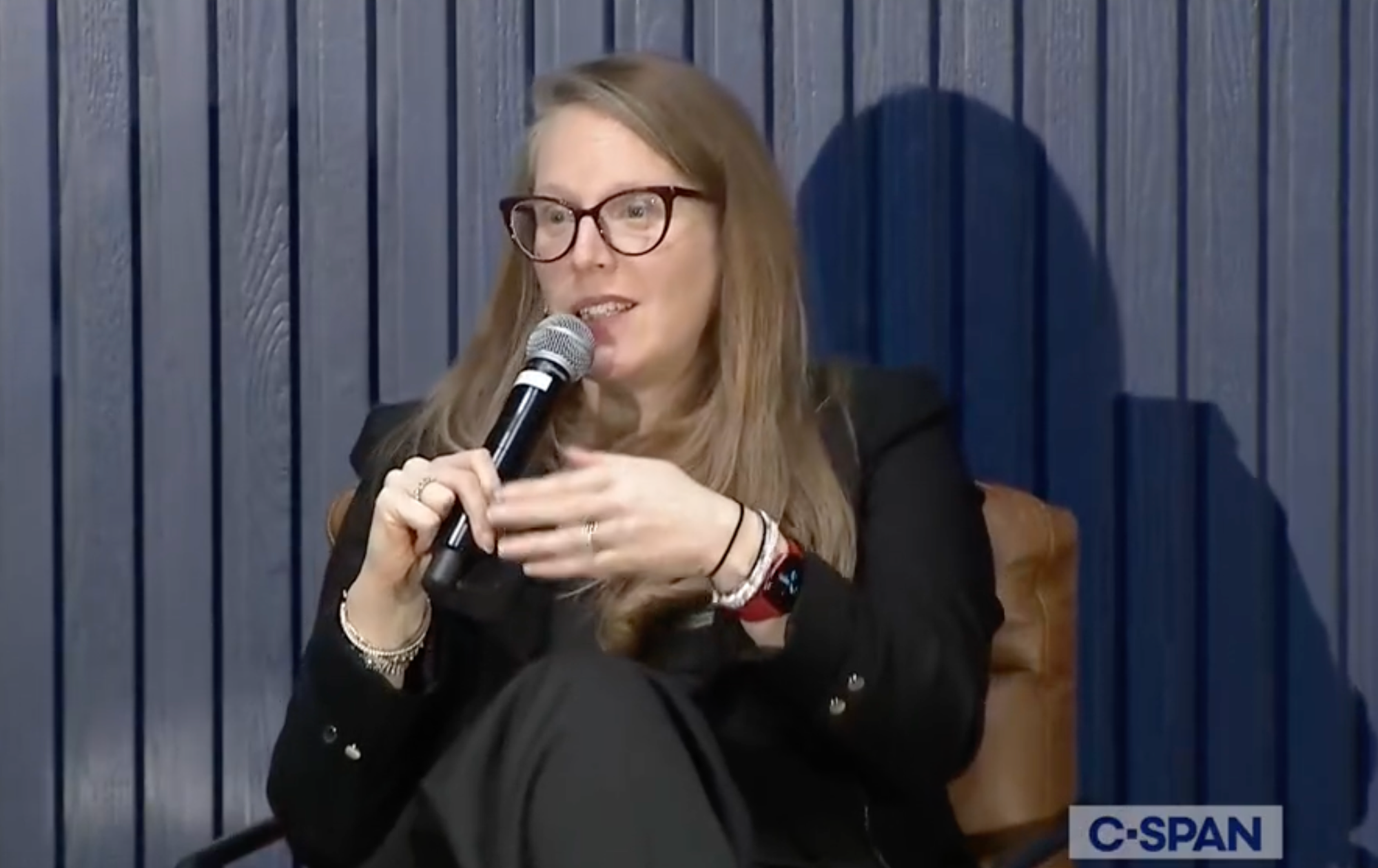
Precision Strategies client Microsoft has been one of the Big Tech companies under scrutiny by the FTC and the regulatory posture of the agency’s chair, Lina Khan. In June, the FTC took the lead in investigating Microsoft’s $10 billion investment in OpenAI, maker of the ChatGPT tool, which made Microsoft its largest investor, with a significant minority stake. The New York Times reported that the deal was structured to avoid antitrust inquiry. The FTC is also investigating Microsoft’s recent $650 million deal with Inflection AI, where it hired much of the startup’s staff. More recently, the FTC is reportedly readying an investigation into anticompetitive practices by Microsoft’s cloud computing business. Microsoft has been in the mix of Big Tech companies splurging on A.I. startups, acquiring 17 A.I. companies as of last year, according to a blog post by market intel company CB Insights.
Precision client CVS Health has also faced FTC probes and legal challenges into the dominance of its pharmacy benefit manager (PBM) subsidiary CVS Caremark. In June 2022, the FTC announced its inquiry into the PBM industry’s vertical integration, which enables the pharmacy middlemen companies to wield outsized market power over patients and independent pharmacists. An interim FTC report from July found that CVS Caremark is the largest PBM, filling more than one in three prescriptions in the United States. In its stack of companies, CVS also owns the country’s largest retail pharmacy chain, a mail-order pharmacy, and Aetna Health, the third-largest health insurance company. Some of the PBM practices under scrutiny by the FTC included charging fees and clawbacks to unaffiliated pharmacies, steering patients toward PBM-owned pharmacies, and using opaque pharmacy reimbursement methods. In an August campaign speech, Harris called for transparency in pharmacy middlemen to lower the cost of insulin and other prescription drugs.
Precision co-founder Cutter served as counselor to former Treasury Secretary Timothy Geithner during the hectic earliest months of the Obama administration, from January until May 2009, according to her LinkedIn profile. The nation was being roiled by the 2007-08 financial crisis, and Geithner had become the face of support for a bailout of the financial system—especially Wall Street—that was signed into law in the final months of the George W. Bush administration. Later, in the 2012 presidential contest, Democrats successfully laid into Republican nominee Mitt Romney’s record of private equity deals at the firm Bain Capital that led to layoffs at companies like American Pad and Paper. After leaving the Obama administration in 2013, Geithner joined private equity firm Warburg Pincus as president and managing director.
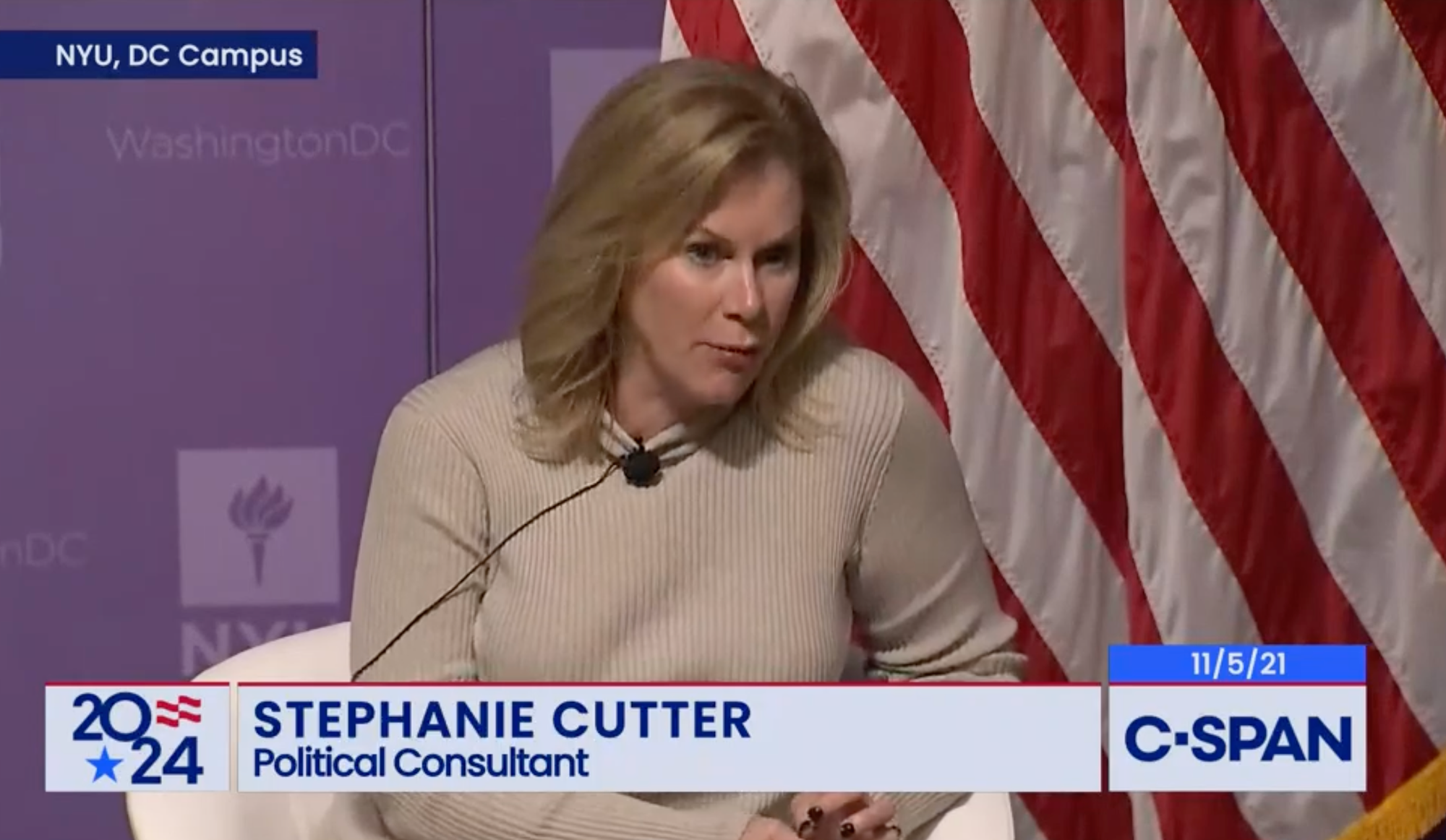
The firm Warburg is a member of industry trade group the American Investment Council (AIC), which in 2021 and 2022 paid Precision nearly $1 million for “public affairs” consulting, according to tax records filed by AIC. During the first year of the Biden administration, AIC backed then-Democratic Sen. Kyrsten Sinema in her stand as she resisted Democratic efforts to narrow the “carried interest” loophole used by wealthy investment managers to lower their tax rates.
Another Precision client is Bank of America, the second-largest bank in the U.S. by total assets. Last year, the Consumer Financial Protection Bureau (CFPB) ordered the bank to pay $100 million to harmed consumers, and $150 million in penalties to the government, for charging illegal junk fees, withholding reward bonuses, and opening accounts without customer knowledge. Bank of America’s “double-dipping scheme,” the CFPB found, harmed hundreds of thousands of consumers over several years. The bank was previously hit with fines by the CFPB in 2014, for illegal credit card practices, and in 2022, for faulty disbursement of state unemployment benefits during the Covid-19 pandemic.
Precision Strategies kept up its work for vaping company Juul Labs until the end of 2018, dropping the client, Politico sources said, because of a 35 percent stake taken by tobacco company Altria. That year, the Democratic attorney general of North Carolina, Josh Stein, began an investigation into the company’s marketing of e-cigarettes to young people and misrepresenting the health risks of nicotine, resulting in a lawsuit that was settled in 2021 for $40 million. Later lawsuits put Juul’s total settlements paid at more than $1 billion in 45 states for charges of marketing its addictive products to teens.
Uber Honchos
David Plouffe officially came aboard the Harris campaign in early August as senior adviser, reassessing the operation handed over by the Biden team. After managing Barack Obama’s presidential campaign in 2008, and serving as a senior adviser to the president from 2011 to 2013, Plouffe joined Uber, where he worked as senior vice president of policy and strategy from August 2014 to January 2017. His responsibilities included harnessing his digital skills and political network to help the company gain access in cities where the company squared off against regulators. Plouffe was fined $90,000 in 2017 by the Chicago Board of Ethics for lobbying former Mayor Rahm Emanuel in favor of airport pickups by the ride-sharing company without registering as a lobbyist, and in 2022 he did not respond to questions from The Guardian about whether he had knowledge of a “kill switch” that could hide access to sensitive data after French regulators raided company offices.
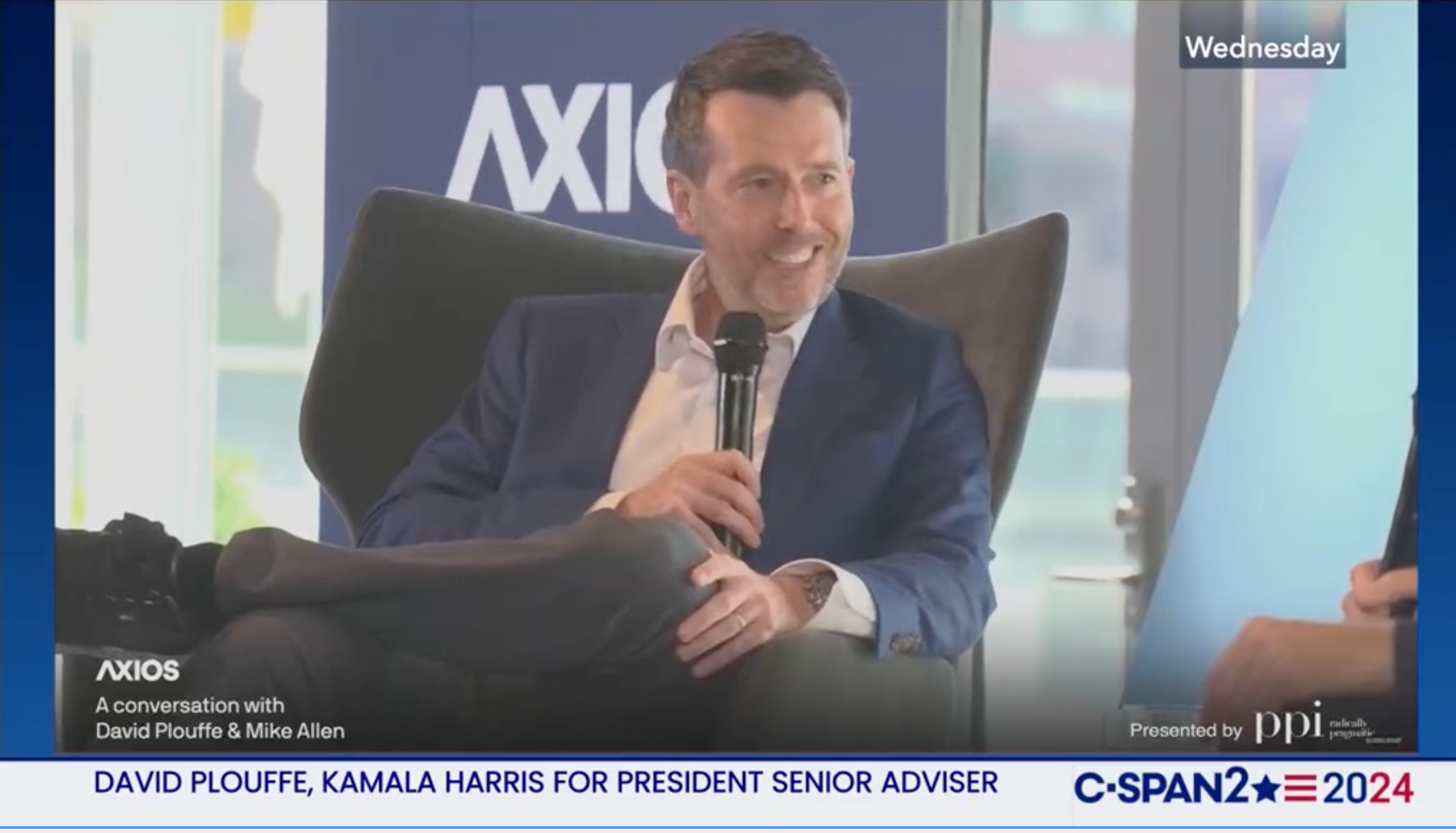
From January 2017 to November 2019, Plouffe worked as president of policy and advocacy for the Chan Zuckerberg Initiative (CZI), established by Facebook founder Mark Zuckerberg and his wife Priscilla Chan, alongside a policy board led by George W. Bush administration official Ken Mehlman. Unlike a traditional nonprofit charity, CZI, which was to house 99% of the couple’s worth of around $45 billion, was incorporated as an L.L.C., which allows investments in for-profit social enterprises. Its structure also likely avoided capital gains taxes that would be incurred if the company sold shares of Facebook stock, rather than donated shares to the recipients of its giving. One unnamed former employee who left CZI called it “Facebook’s PR machine.”
In 2022, Plouffe signed on with the global advisory board of Binance, the world’s biggest cryptocurrency exchange, to advise on regulatory, political, and social issues. With a wave of legislation introduced in Congress seeking to govern the crypto industry, Binance’s U.S. branch tapped three lobbying firms that year to expand its influence operation. The exchange was banned from U.S. operations in 2019 due to regulatory failures. Last year, Binance was named in enforcement actions by the Commodity Futures Trading Commission (CFTC) and Securities and Exchange Commission (SEC) over charges of numerous violations of the Commodity Exchange Act (CEA) and operating unregistered exchanges. In November 2023, Binance and its former CEO, Changpeng Zhao, a Canadian national known as CZ, pleaded guilty in a Department of Justice investigation that included its failure to register as a money transmitting business, paying over $4 billion in resolution.
In a recent article in The Atlantic, Harris adviser Tony West was named by an anonymous Biden aide as steering the campaign away from sharp criticism of corporate power, angling toward the approval of big business. West has worked as senior vice president, chief legal officer, and corporate secretary for Uber since November 2017, according to his LinkedIn profile. In 2023, his compensation reached $10.4 million, composed of $7 million in stock and $3.3 million in cash, according to a Bloomberg Law review of company financials. West’s stock holdings in the company reportedly totaled about $14.7 million as of March. Before joining Uber, West was the general counsel, corporate secretary, and EVP of public policy and government affairs for PepsiCo for over three years, a role that had him travel to Saudi Arabia to discuss a potential sugar tax.
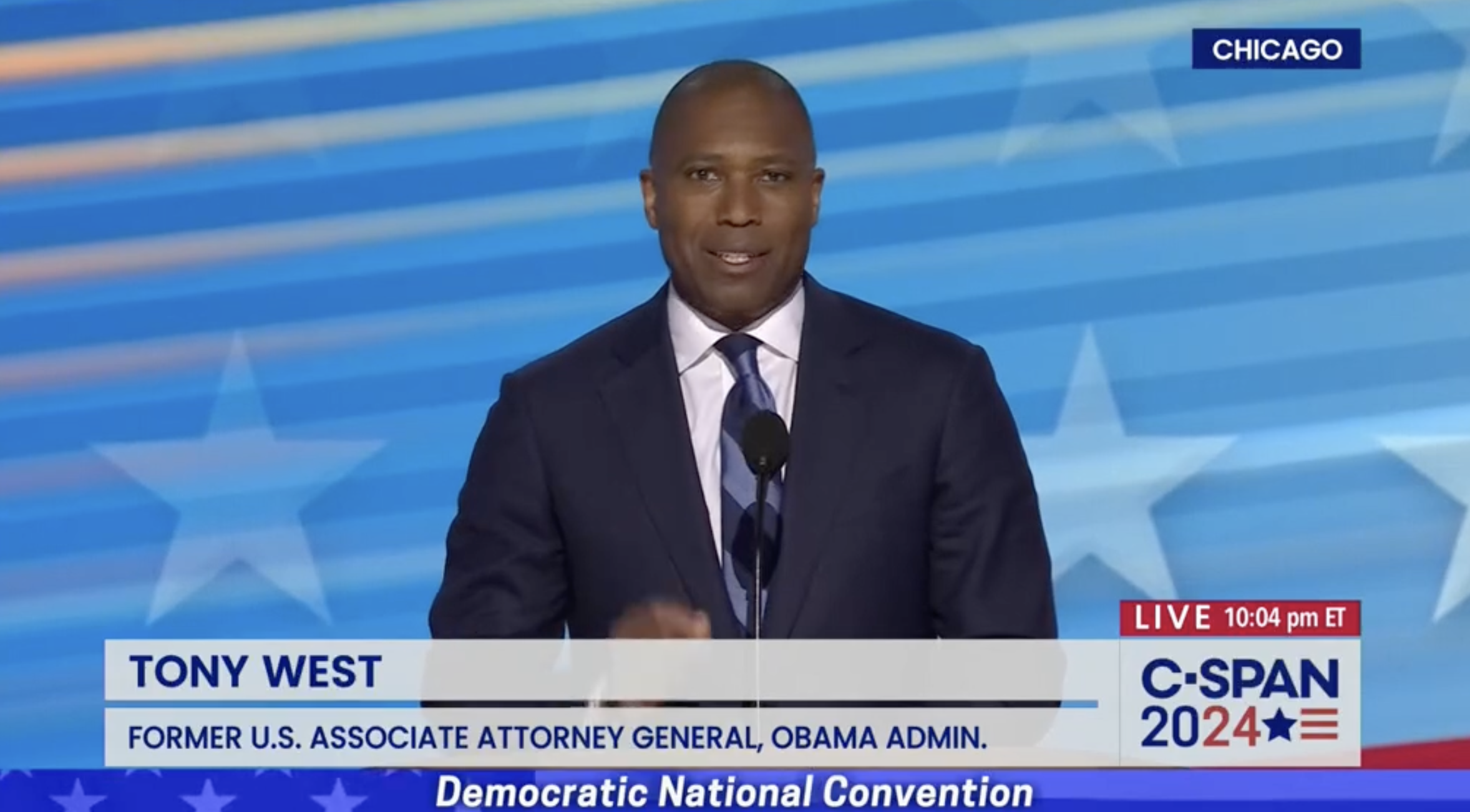
In 2019 and 2020, Uber and Lyft were at the forefront of a $200 million campaign supporting a ballot initiative, known as Prop 22, to protect their ability to classify rideshare drivers and other workers as independent contractors in California, as opposed to employees who would be eligible for benefits and other labor protections. According to the New York Times, West’s efforts on behalf of Uber encompassed negotiating with unions, legislators, and aides to Gov. Gavin Newsom on a compromise measure that was fiercely opposed by state labor groups. After massive influence spending by Uber, the measure was adopted by voters, and this year was upheld by California’s Supreme Court. At the federal level, Uber belongs to a coalition suing the Department of Labor over a rule on independent contractor status.
High-profile surrogate Mark Cuban said of West, “I’ve had conversations with Tony and people on their team, and I find them very smart, very open to all business ideas.”
Economic Populism Takes a Backseat
Whereas progressives sought a more immediate response to voters’ dissatisfaction with the economy, and more full-throated attacks on the effects of corporate power on daily household expenses, Harris’ talking points were often diluted by advice from wealthy Wall Street donors. For example, October reporting by the New York Times said that Harris walked back a proposed tax hike on capital gains in her speeches after talks with allies in finance and big business.
To be sure, starting in early September, Vice President Harris’ campaign did run a campaign ad in battleground states highlighting her proposal for the first-ever federal ban on price gouging, to take on high grocery prices. Her “opportunity economy” agenda said it would lower costs for healthcare and housing, and raise the minimum wage, among other things.
Campaign memos from October, first reported by the Washington Post, show the largest pro-Harris super PAC, Future Forward, pointing out an opportunity for the Harris campaign to juice spending behind a “high-performing” ad with a script that leads with Harris saying, “I get it. The cost of rent, groceries, and utilities is too high. So here's what we're gonna do about it.” The ad saw little airtime, the New York Times wrote.
In the November contest, working-class voters went 63% for Trump, according to an NBC News exit poll, compared with their leaning Democratic in 2008. Trump’s gains among Hispanic and working class-voters, especially in seven battleground states where Harris slightly underperformed compared with Biden in 2020, were plenty to deliver him the Electoral College, and wider trends like lower turnout for Harris helped Trump win the popular vote. Harris’ campaign time spent with Liz Cheney ended up losing ground to Trump compared with the 2020 election—the share of self-described conservatives voting for Biden in 2020 was 14%, versus just 9% for Harris this year, according to NBC News exit polls.
Rumblings among swing-state Democrats, a month out from Election Day, that Harris was coming up short of resonating with working-class voters were borne out. In the past few days, Liz Shuler, president of the AFL-CIO, lamented a “disconnect” with people in the working class who were “very much economically insecure” despite the Biden administration’s touting of its economic measures. Even Democratic insider and MSNBC host Jen Psaki, after Election Day, joined in the criticism of embracing the Cheneys’ support.
Thank you for reading — if you appreciate this newsletter’s focus on the corporate clients of top political decision-makers, please sign up as a subscriber and get full access to Sludge’s daily stories.
